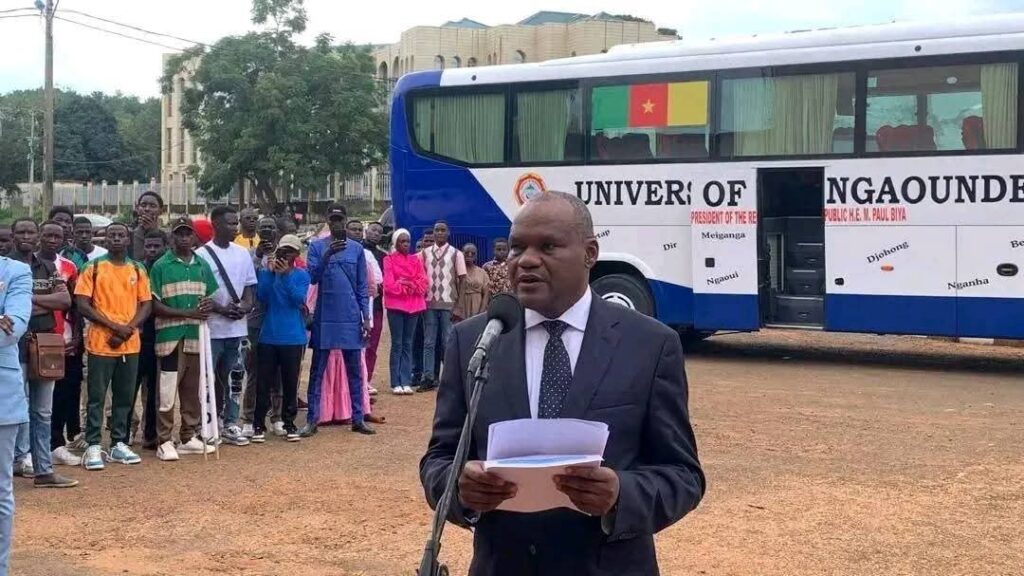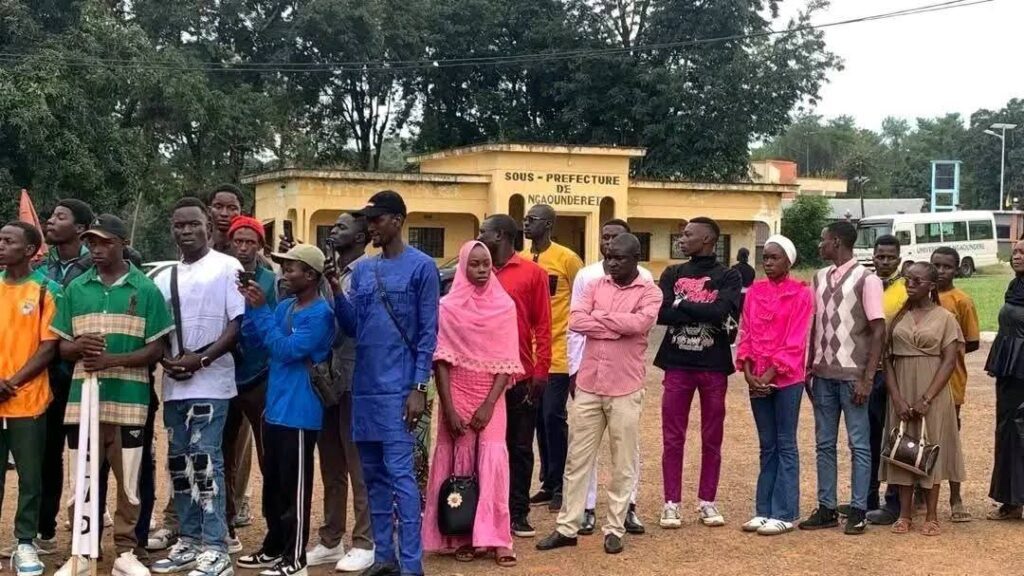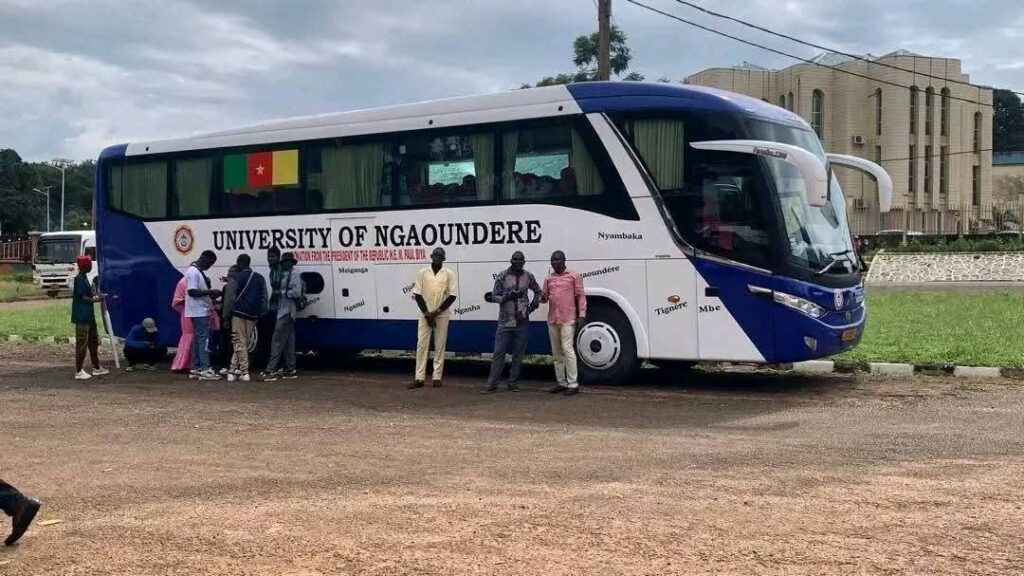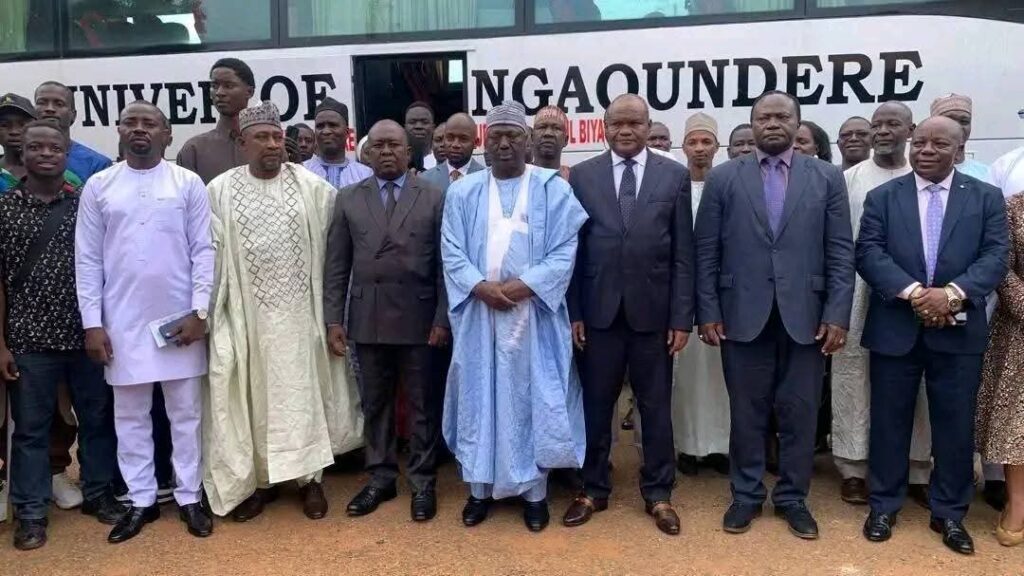President Paul Biya has donated a 50-seater bus to the University of Ngaoundéré, a gesture that has sparked both appreciation and criticism across academic and political circles.
The vehicle was officially handed over on Wednesday, October 15, by the Governor of the Adamawa Region, Kildadi Taguiéké Boukar, who represented the Head of State during a brief but highly publicized ceremony on campus.
According to officials, the bus will be used for daily shuttle services between the city and the university campus — a distance of about 12 kilometers — and for academic activities such as study trips and field excursions.

Speaking during the event, the Rector, Professor Mamoudou Abdoulmoumini, expressed deep gratitude to the Head of State.
“This bus will greatly ease mobility constraints and contribute to the smooth running of our institution. It comes at a time when transportation challenges were beginning to affect the morale and punctuality of our students,” the Rector said.
However, not everyone is applauding the donation. Critics argue that the gesture, though commendable, exposes deeper structural problems in Cameroon’s education system.
Critics Question Priorities

Many observers have described the donation as symbolic but insufficient, noting that the University of Ngaoundéré, like most state universities, faces chronic underfunding, overcrowded lecture halls, and decaying infrastructure.
“A single bus cannot solve the transportation crisis of thousands of students who commute daily on dusty, pothole-ridden roads,” said a student leader who requested anonymity for fear of reprisal.
“It’s like putting a bandage on a broken leg.”
Others see the move as part of a larger political narrative ahead of the proclamation of official results from the October 12th presidential election. They point out that such donations often appear in the wake of heightened political tension or election seasons, raising suspicions about the motive behind them.
“Every time elections are near, we suddenly see gifts from the presidency — vehicles, computers, even promises of hostels,” commented a lecturer at the Faculty of Arts and Humanities.
“But after the ceremonies, the real problems — poor internet, lack of research grants, and unpaid allowances — remain untouched.”
A Reminder of the System’s Fragility

Students and staff welcomed the bus with excitement but also lamented that basic university needs — from library resources to laboratory equipment — remain grossly inadequate. Some even pointed out that the university already has old buses that are grounded due to lack of maintenance funds.
“We are grateful, but let’s be honest — what we need is not just a bus but a functioning transportation system managed by the university,” said another student from the Faculty of Science.
The government, however, insists that the gesture demonstrates President Biya’s commitment to education and youth empowerment, adding that “every effort counts.”
Governor Kildadi Taguiéké Boukar, during his speech, called on students to “show gratitude by working hard and contributing to national development,” describing the Head of State’s gesture as “proof of his paternal care for Cameroon’s youth.”
Public Opinion Split

Reactions online were sharply divided. Supporters of the regime hailed the President as “a father who never forgets his children,” while critics called the gesture “a drop of water in a desert of neglect.”
The debate has once again reignited discussions about the centralized nature of power in Cameroon, where even modest donations to public institutions are presented as presidential benevolence rather than government policy.
As one university staff member summed it up:
“We appreciate the bus, but what we really want is a government that invests systematically, not symbolically, in higher education.”
